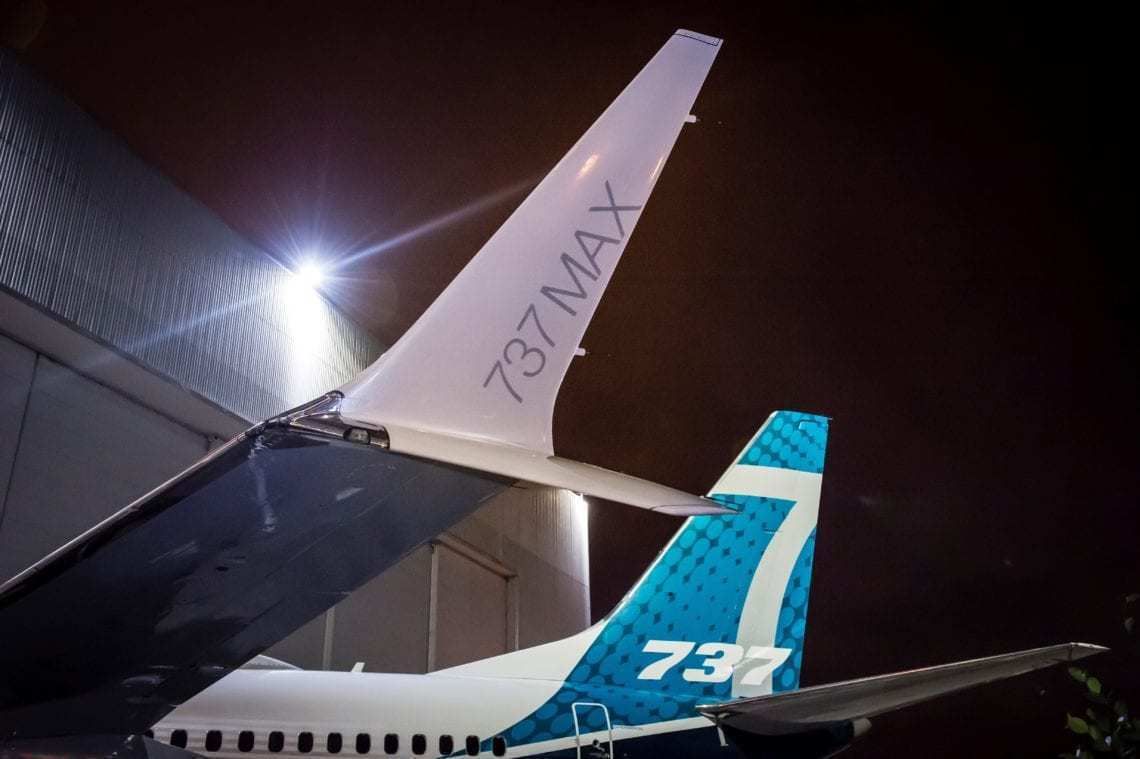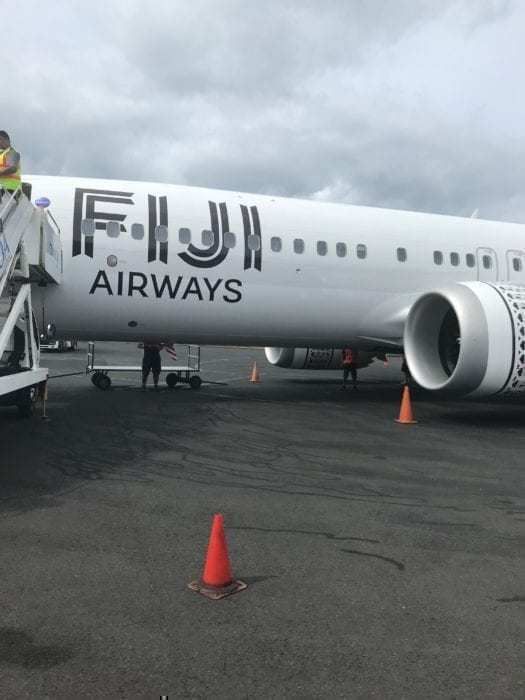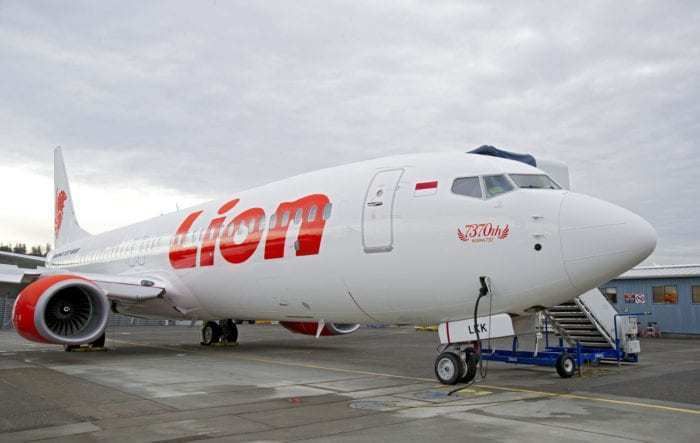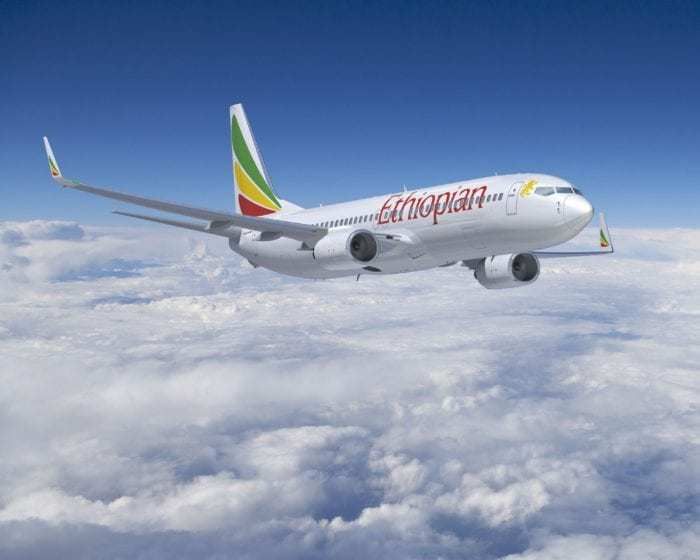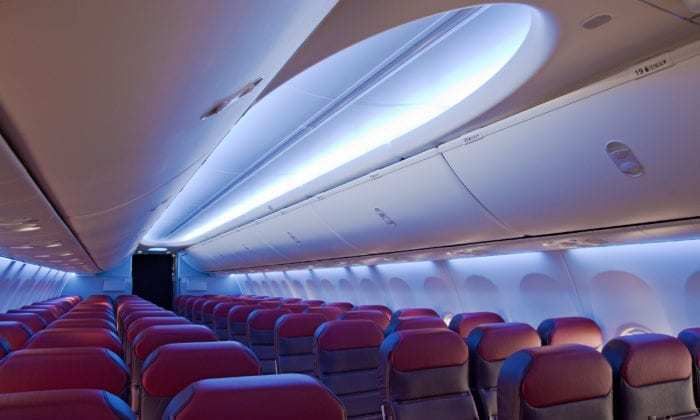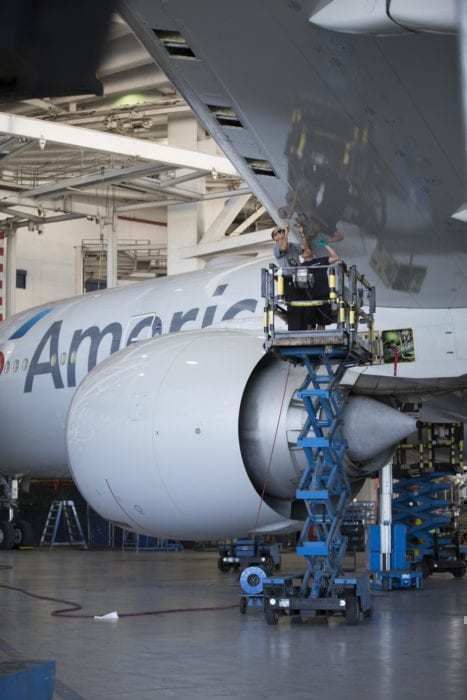In 2019, it’s unthinkable that new planes can just fall out of the sky Yet, we’ve seen two cases where this has indeed happened, and within just a few months of each other. While the investigation is ongoing and similarities remain, the real question on many travelers' minds is: “Is the 737 MAX safe to fly?” To answer that, I want to share a little story of my experience on a 737 MAX 8.
In February, I took two flights on the 737 MAX 8 operated by Fiji Airways between Fiji and Samoa. You can read a review of the outbound flight here. It was a normal flight by all standards, but I was nervous about the prospect of getting on a 737 MAX 8 after the Lion Air crash. However, the outbound flight was fantastic and any concerns I had about flying a 737 MAX aircraft were somewhat mitigated.
That was, until my return flight. We departed Apia bound for Nadi, Fiji at 5pm. We had a normal takeoff roll. After a few minutes, when we were at about 4-5,000 feet, something interesting happened. We leveled-off a little sharply and experienced something of a nosedive with engines at almost idle. It was not a very significant nosedive, maybe a couple hundred feet at most, but enough to get a frequent flier and avgeek a little rattled. In those few moments, the only thing running through my head was "I'm going to die alone". I was relieved to the point of almost crying when we continued our climb and our throttle increased.
Neither the pilots nor cabin crew offered any explanation for what happened. I assumed it was a minor glitch or something. I tried to convince myself it was light turbulence. It may sound like I'm overreacting to the situation, as flying is a stressful event that can bring out more emotions than we expect, but overall, it led me to question whether or not I should have been on this aircraft.
Undoubtedly, there are plenty of people who are concerned about upcoming flights on 737 MAX aircraft. In this article, I'm looking to provide you the information you need to be able to make a decision as to whether or not to remain on your 737 MAX aircraft or search for other options.
The Crashes
Simple Flying has reported extensively about the fatal Lion Air and Ethiopian Airlines flights, so I'm not going to go into much detail. You can catch up on the Lion Air story here and the Ethiopian Airlines flight here.
Basically, very very very very new 737 Max 8 planes ended up scattered in pieces shortly after takeoff. Both exhibited some distress in terms of fluctuations in vertical speed, and both flights had no survivors.
The Airlines
Lion Air is a massive Indonesian low-cost carrier. With plenty of subsidiaries, Lion Air is a dominant force in the Indonesian domestic market and Southeast Asian air market as a whole. Catering to price-sensitive leisure travelers, Lion Air operates mainly to tourist destinations and aims to fly efficiently and cheaply.
In the past, Lion Air have had a poor safety record attributed to them, and were banned from flying into European airspace for some time. After making improvements in safety procedures, Lion Air was deemed safe enough to fly to the European Union. Then, on October 29, 2018, a brand new 737 MAX 8 crashed into the Java Sea. This raised some questions about Lion Air's safety record and attributed some murky operational details to the aircraft's unfortunate crash.
On the other hand, Ethiopian Airlines is also a gigantic African airline. They are a dominant force and their growth is tremendous. They are well known in the aviation world and fly to various destinations, including to the U.S. What is most striking about this incident is that Ethiopian Airlines has an excellent safety record. The plane in question had been flying normally and passed all of Ethiopian Airlines' maintenance checks.
While investigations are not complete, the comparison of both of these incidents leads to questions about the aircraft itself.
The Aircraft
Boeing's 737 is undoubtedly a highly successful aircraft. Since its early days to modern times, they've been loved by airlines and passengers alike as a short or medium-haul workhorse. As some airlines expand on long and thin routes, the 737 became ideal for their operations; especially the 737 MAX.
Boeing is also making a huge profit from its 737 program. Undoubtedly, any negative press about Boeing 737 will cause some unease which could see Boeing lose orders. It remains to be seen how this turns out for Boeing, but anything is possible.
In creating this new aircraft, Boeing introduced a new anti-stall system that was, apparently, not well documented or advertised to trainers and pilots. This led to an outcry from some pilots due to the lack of notification. While Boeing did ultimately issue a bulletin, it would have been nicer to see them advertise the system in the first place.
On the inside, the Boeing 737 MAX is a quiet and advanced aircraft. On my flights, I enjoyed the quiet flight and found the larger overhead bins and Sky Interior to be welcome features. While the bathroom was a bit tight, the aircraft was fine for short- or even medium-haul routes. In fact, I noticed that the 737 MAX seemed far more improved over the 737 than an A320neo compared to the A320.
While seat pitch and lavatory size can vary from airline to airline, as a whole, the 737 MAX aircraft feels refreshed and helps make for a great flight on any airline. Personally, I felt less jet-lagged and found the pressurization to be comfortable on the ears and the body. Compared to other aircraft, the low noise inside the cabin really makes a difference. I didn't feel like I had to shout at the flight attendant for her to take my meal order.
The Statistics
Air travel is the safest form of transportation there is. The aviation industry has come a long way since turboprops and multi-day transcontinental routes. Incidents do happen, but when they do the aviation world studies these incidents carefully and documents them for improvements. This makes every year a safer year for flying on an aircraft.
Every year, older aircraft are retired in favor of newer models with better fuel efficiency and safety features. Maintenance procedures are improved and airlines are investing in safe aircraft.
The combination of these factors makes crashes incredibly rare. This is especially true for newer aircraft. Getting on a plane these days is safer than getting in a car. The odds of dying in a car accident are about one in 100. The odds of dying on a plane is about one in 200,000. While those statistics vary based on the type of aircraft you get on, the maintenance schedule of the aircraft in question, etc. etc., the bottom line is, flying is incredibly safe.
Is the 737 MAX safe?
The short answer is we don't know. We're still waiting on the results of this investigation, but here is what I can leave you with.
If you are anxious about flying, stay away from the 737 MAX. If you're an anxious traveler, you can go with the timeless mantra: it is better to be safe than sorry. Flying can already cause stress for worried passengers and you don't want even more stress because you're concerned about a flaw with the plane that might cause it to crash. Purely for your mental sanity, I would recommend you choose another aircraft.
If you're examining the situation based on the data and statistics, the odds seem pretty good that you could get on a 737 MAX flight and arrive safely at your destination. There are about 350 in service and only 2 have been involved in a hull loss. American Airlines, United Airlines, and Southwest Airlines all fly the 737 MAX aircraft on a daily basis. Thankfully, there have been no reported hull losses with the 737 MAX on any of their aircraft. In addition, no major news or pilot statements have been released indicating that any of the aforementioned airlines had an in-flight incident due to issues with the new anti-stall system that Boeing introduced on the 737 MAX.
China has grounded the 737 MAX, but as of now, no other major civil aviation body has issued a bulletin, notice, or complete grounding of the 737 MAX. Ethiopian Airlines and Cayman Airways have also grounded their 737 MAX aircraft.
Ultimately, it is up to you to decide whether or not to avoid the 737 MAX. We're still waiting on a final report, but we'll keep you updated with all the developments of the 737 MAX here at Simple Flying.
Will you fly on the 737 MAX? Let us know in the comments!
Editorial note: I, the author, do not work for Boeing, Airbus, Embraer, Bombardier, etc. No aircraft manufacturer or airline is compensating me for writing this article.

